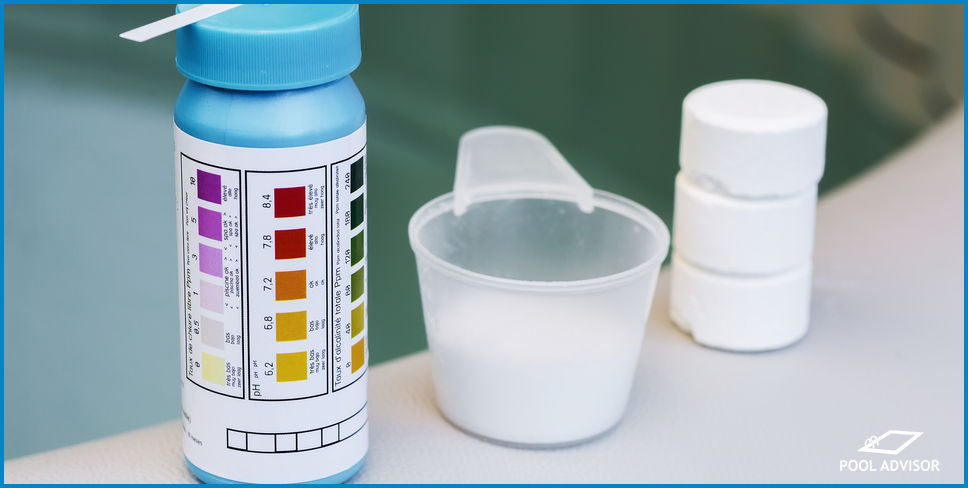
Does Chlorine Raise Or Lower pH In My Pool? Why?
Has it ever crossed your mind whether chlorine raises or lowers the pH levels in your pool?
After all, pH levels play a big part in how pool water looks and stays clean. Even a slight mismanagement of it could see your water quickly go from clear to green.
That is why chlorine plays such a big part in pool maintenance. It acts as a sanitising agent to keep the pool clean and the water clear.
Yet, most people wouldn’t stop to think about if chlorine raises pH levels and what the effect may be. So does chlorine significantly increase the pH levels?
A matter of chemistry
Let’s be honest – the state of your pool is down to basic chemistry. On the pH scale, water sits at 7 – meaning it is completely neutral. The scale can then slide anywhere between 1 – 14 as other compounds start to affect it.
Dropping below 7 means a liquid is turning acidic and anything above that shows that it is alkaline. The ‘chlorine’ that we add to our swimming pools is typically actually sodium hypochlorite, which has a natural pH level of 11-13.
What this means is that adding chlorine to your water will naturally raise its pH depending on the quantity. With pool water typically having a pH of about 7.5, the changes in its pH level happen gradually as chlorine is added.
However, that’s not the end of the story. While adding chlorine will initially raise the pH thanks to the formation of sodium hydroxide (NaOH), the chlorine will degrade over time due to sunlight.
This results in the formation of hydrochloric acid, which lowers the pH by a similar amount that the sodium hydroxide raises the pH. The net result? The pH doesn’t really change all that much.
pH and Unstabilised Chlorine
One thing to keep in mind here is that the effectiveness of unstabilised chlorine (without any cyanurates) is highly dependent on pH.
If your pH is already a little on the high side (higher than 7.6) when you add unstabilised chlorine, the initial boost in pH caused by the formation of sodium hydroxide could lift your pH into the zone where the chlorine is ineffective.
This is why stabilised chlorine is generally recommended over the unstabilised version, as it performs well over a much wider pH range.
So does chlorine increase or decrease the pH level?
In the short term, you will see a bump in pH after adding chlorine. However, this effect will be reversed over time, and your pH will return to its old value.
As long as you are using stabilised chlorine, this isn’t anything to be concerned about!

Louis
A chemical engineer by trade, Louis is committed to debunking myths in the pool industry by explaining the underlying chemistry and making it accessible to all.
